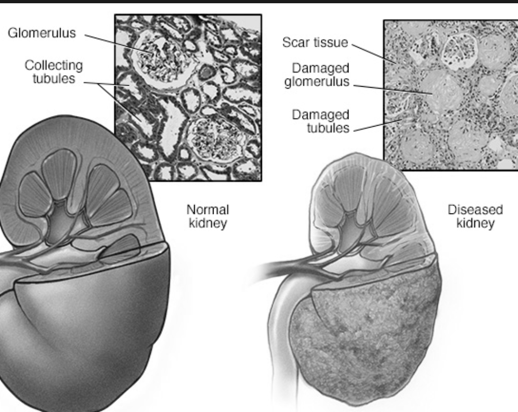 Photo: Getty Images
Photo: Getty Images
Type 2 diabetes casts a long shadow for African-American women. In a May 18, 2010 article, Womenshealth.gov reported that with 25 percent of African-American women over the age of 55 are dealing with type 2 diabetes, this represents an enormous health hazard. It can often lead to serious consequences like kidney failure and/or amputation, of a toe for instance, or a foot.
Blackwomenshealth.org cautions that almost half of all African-American females who were born during or since the year 2000 are at serious risk for type 2 diabetes.
Type 2 diabetes is a chronic condition involving unhealthy blood sugar levels which can cause damage to the eyes, feet, heart, kidneys, mouth, nerves and skin. In severe cases the long-term consequences of these high blood sugar levels can be fatal.
The body's ability to make and/or use insulin adequately is impaired. This means that the blood sugar produced from eating is not metabolized properly. Making ongoing changes to the diet along with other foundational lifestyle changes are essential to prevent further physical deterioration over time.
Of African-American women age 20 or older, 12 percent have type 2 diabetes, and the rate only accelerates as their ages increase. Of all cases of type 2 diabetes in the United States, 15 percent are African-American women.
This is further impacted by the fact that African-American women also tend to be in danger of becoming overweight or obese. They also stand a greater than average chance of developing high cholesterol and high blood pressure.
High blood pressure can contribute to diabetic eye disease as well as kidney disease.
According to Blackwomenshealth.org, about 80 percent of African-American women are overweight, with about half of all African-American women being obese. This increases their risk for type 2 diabetes. Vulnerability will decrease when sufficient weight loss is accomplished.
The National Diabetes Education Program (NDEP) encourages a weight loss of 5 to 7 percent of body weight to reduce the risk for type 2 diabetes.
Increasing activity levels can help to reduce the risk of type 2 diabetes. Blackwomenshealth.org recommends half an hour of moderate activity like going for a vigorous walk, or perhaps dancing, five days per week. If this is too taxing, shorter times of activity can still be beneficial.
Reducing stress levels, and making lifestyle changes like learning to relax and become better able to handle stress, can also reduce the risk for type 2 diabetes.
Womenshealth.gov urges African-American women to have their blood pressure, cholesterol and blood sugar levels checked by a doctor on a regular basis.
Sources:
Minority Women's Health: Diabetes. Womenshealth.gov. Web. October 1, 2011.
http://www.womenshealth.gov/minority-health/african-americans/diabetes.cfm
Black Women and Diabetes - More than a Little Sugar. Blackwomenshealth.org. Web. October 1, 2011.
http://www.blackwomenshealth.org/issues-and-resources/black-women-diabetes-more-than-a-little-sugar
Visit Jody's website and blog at http://www.ncubator.ca and http://ncubator.ca/blogger
Edited by Malu Banuelos



